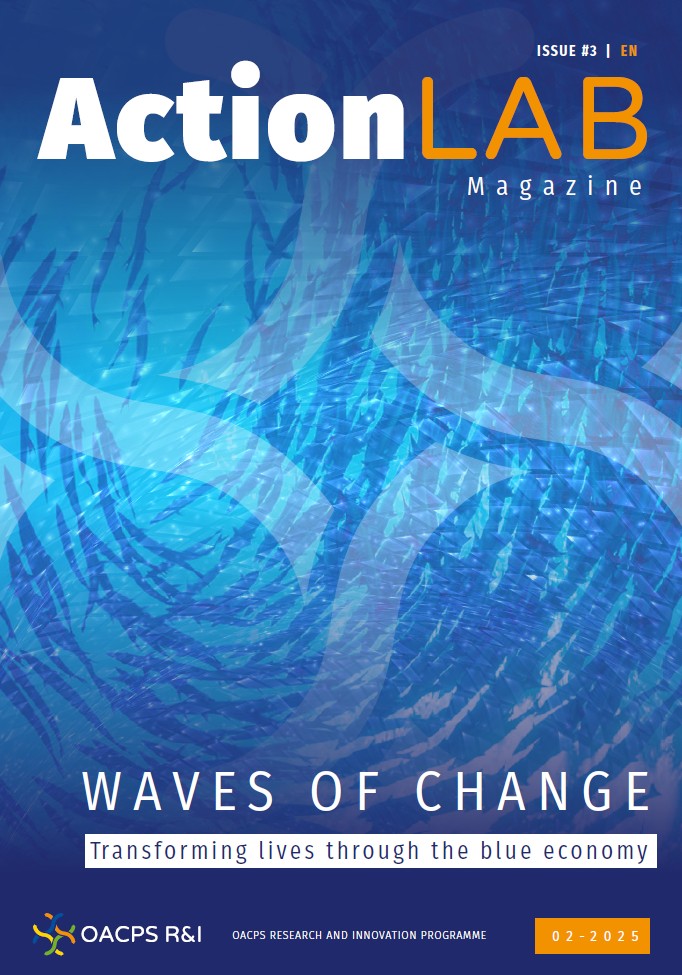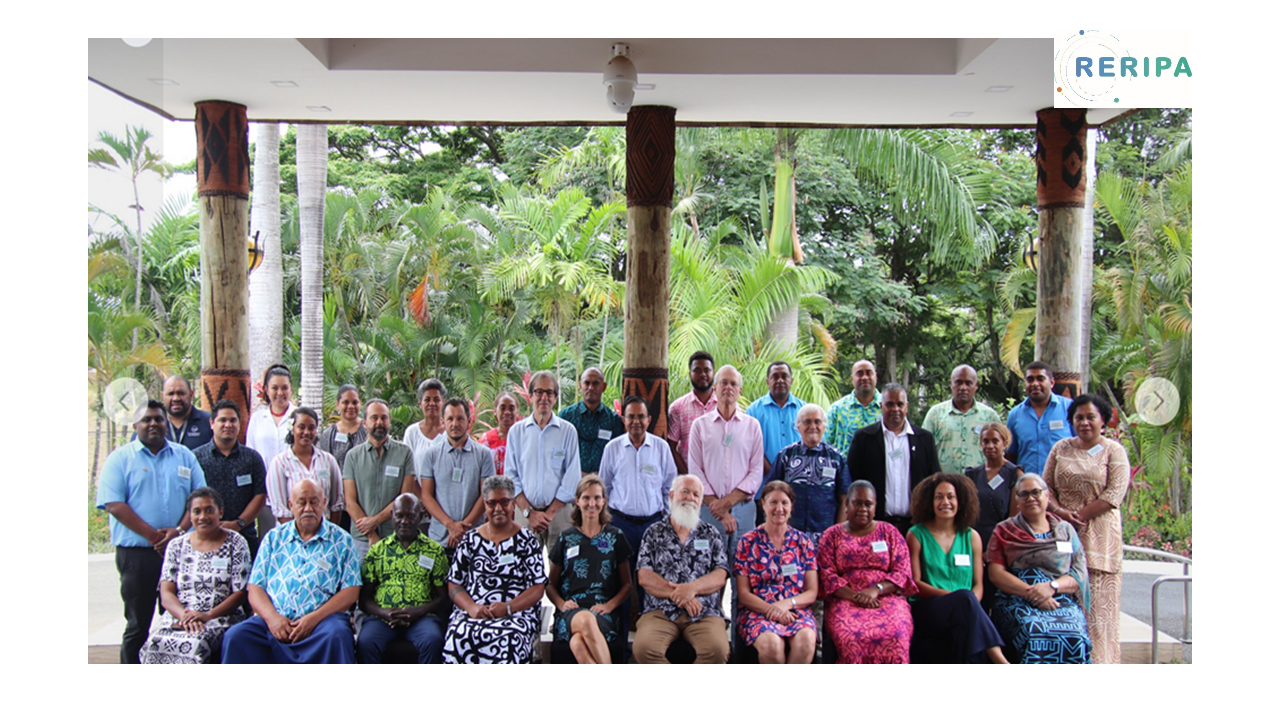
Objectives of RERIPA
The original approach of RERIPA “Renforcement des écosystèmes de Recherche et d’Innovation face aux enjeux climatiques dans le Pacifique” (Strengthening Research and Innovation Ecosystems to Address the Impact of Climate Change in the Pacific) in the Small Island Developing States (SIDS)” is to support the co-design and deployment of solutions for minimizing the climate change vulnerability of coastal areas by academic actors, companies, NGOs, users’ representatives and public authorities, in order to respond to identified needs of action for coping climate change issues. Through this co-design the project aims to reinforce the research and innovation (R&I) ecosystems in the ACP Pacific region to strengthen our response to the impact of climate change.
The RERIPA project is an initiative selected under the call for projects of the ACP Innovation Fund, part of the Organization of African, Caribbean and Pacific States’ (OACPS) Research and Innovation (R&I) Programme with financial contribution from the European Union (EU) (Contract FED-2020-421-373).
RERIPA Specific objectives :
- SO1. R&I stakeholders collaborating across the Pacific region through a regional network to develop and apply innovative R&I strategies, in particular to introduce CCI solutions
- SO2. R&I stakeholders able to generate, apply and transform knowledge to innovate for sustainable development
- SO3. Increased uptake in the region of innovative, inclusive and sustainable solutions to face regional climate change impacts tested, developed or adapted by the Living Labs
Geographical scope: RERIPA will be implemented in one or more of the 15 SIDS in the Pacific Region ACP Countries: Cook Islands, Federated States of Micronesia, Fiji, Kiribati, Nauru, Niue, Palau, Papua New Guinea, Republic of the Marshall Islands, Samoa, Solomon Islands, Timor-Leste, Tonga, Tuvalu and Vanuatu.
None of these objectives can be achieved while working in separate silos. Therefore, the RERIPA project aims to work closely with all relevant stakeholders in order to co-construct its different actions. I.e. as a program, RERIPA will provide an opportunity for interested parties to apply for Grant funding under several published calls.
Call 1 – Mapping and Diagnosis of R&I ecosystems, networking facilitation, R&I general vision/strategy with a focus on climate Change is step 1. The successful Third Party Project TPP1 consortium was expected to map out the current state of the R&I ecosystem, and identify the various stakeholders across the ACP countries in the region that are involved in the R&I chain, working with stakeholders, to identify the priority areas (with a focus on CCI), to suggest the best strategies for strengthening R&I ecosystems and create a network across the region dedicated to these two main goals.
Call 2 – Capacity Building in innovation and valorisation, is meant to be implemented in parallel with call 1, and to provide the technical expertise and training for R&I partners across the South Pacific. Third Party Project TPP2 was intended to provide Capacity support by training relevant users from across the R&I chain in the South Pacific. Specific training courses would be developed to address the key needs areas identified with the users.
Call 3 – Setting up Living Labs fostering public/private partnerships around the R&I capacity already existing or to be developed, for innovative solutions helping to address CCI. These innovative and sustainable user centered solutions (including smart, frugal innovations) and founded on research based evidence, intended to help supporting SIDS livelihood generation and sustainable development. TPP 1 and 2 contributed in parallel to the setting up and activity of the Living Lab collaborations and the sustainability of their outputs. Globally, this contributed to the strengthening of the R&I ecosystems of ACP countries.
The four RERIPA Living Labs
Supported by the activities carried out by TPP 1 and TPP2 projects, it is anticipated that innovative and sustainable solutions (including smart, frugal, and user-centred) or/and based on the results of research to cope with CCI and support Pacific Islands R&I strategy and blue economy, could be developed and implemented through Living Labs (LL). The LLs are user centred projects, co-designed by different groups of stakeholders (e.g. research organizations, Innovation support organizations, Civil Society Organisations, Non-Governmental Organisations, private companies, policy makers…) to address concerns of public interest. LL will stimulate partnerships and help develop R&I networking in the region.
Four inclusive solutions against Climate Change Impact have been generated by the RERIPA Living Labs as Third Party Projects (TPPs). These Living Labs are untitled 1) TPP3: Decarbonated Energy in small communities in Samoa, 2) TPP4: Climate Change and the future of coastal communities, in Vanuatu, Fiji and Solomon Islands 3) TPP5: Sustainable solution for protection of coastline in Cook Islands 4) TPP6: Coral focused Adaptation innovations in support of community-based conservation in the Pacific, in Fiji, Kiribati and Tuvalu.
Call 4 – TPP8 consortium, contributing to Pacific education/knowledge on Research and Innovation processes and tools, with a reference to Living Labs outputs against Climate Change,
The Third party Project TPP8 consortium intended to gather the innovative results produced by the living labs and by the other proposals. Made under the scope of the 3 other Calls for proposals, a set of courses and supporting documents, dedicated to the strengthening of vocational education and training on climate change impacts, mainly to foster the adoption of living labs outputs.
This newsletter relates all activities of RERIPA participants during the whole Year 4 (March 1st 2024- February 2025, 28). This year was particularly rich in Monitoring and Evaluation events, site visits of Living Labs, and technical and plenary workshops. All reports of workshops can be found in the Final Narrative report.
Activities of all TPPs and CMT during the Year 4 of the RERIPA project (March 1, 2024-February 28, 2025 extended to June 2025) are related month by month.
March 2024. TPP1 SWOT meeting, Vanuatu
TPP1 organized a workshop to provide structured opportunities for stakeholders to share experiences, highlight systemic strengths and weaknesses, and identify both barriers and enablers to effective innovation in climate-related research. Sessions were designed to be interactive, allowing participants to co-develop insights and recommendations through open innovative approaches. Presentations from local and regional experts focused on traditional ecological knowledge, innovation policy, and community engagement and discussions highlighting the need for both technical depth and cultural relevance approaches in the region. Key themes that emerged from the SWOT analyses included:
• Strengths: Deep traditional knowledge systems; presence of engaged academic institutions; increasing donor interest in climate innovation.
• Weaknesses: Fragmented R&I coordination; under-resourced national systems; limited access to innovation funding.
• Opportunities: Integration of Indigenous knowledge with science; growing momentum for regional R&I strategies; potential for digital platforms to enhance collaboration.
• Threats: Climate vulnerability; brain drain; dependence on short-term donor cycles; weak policy uptake of research outputs.
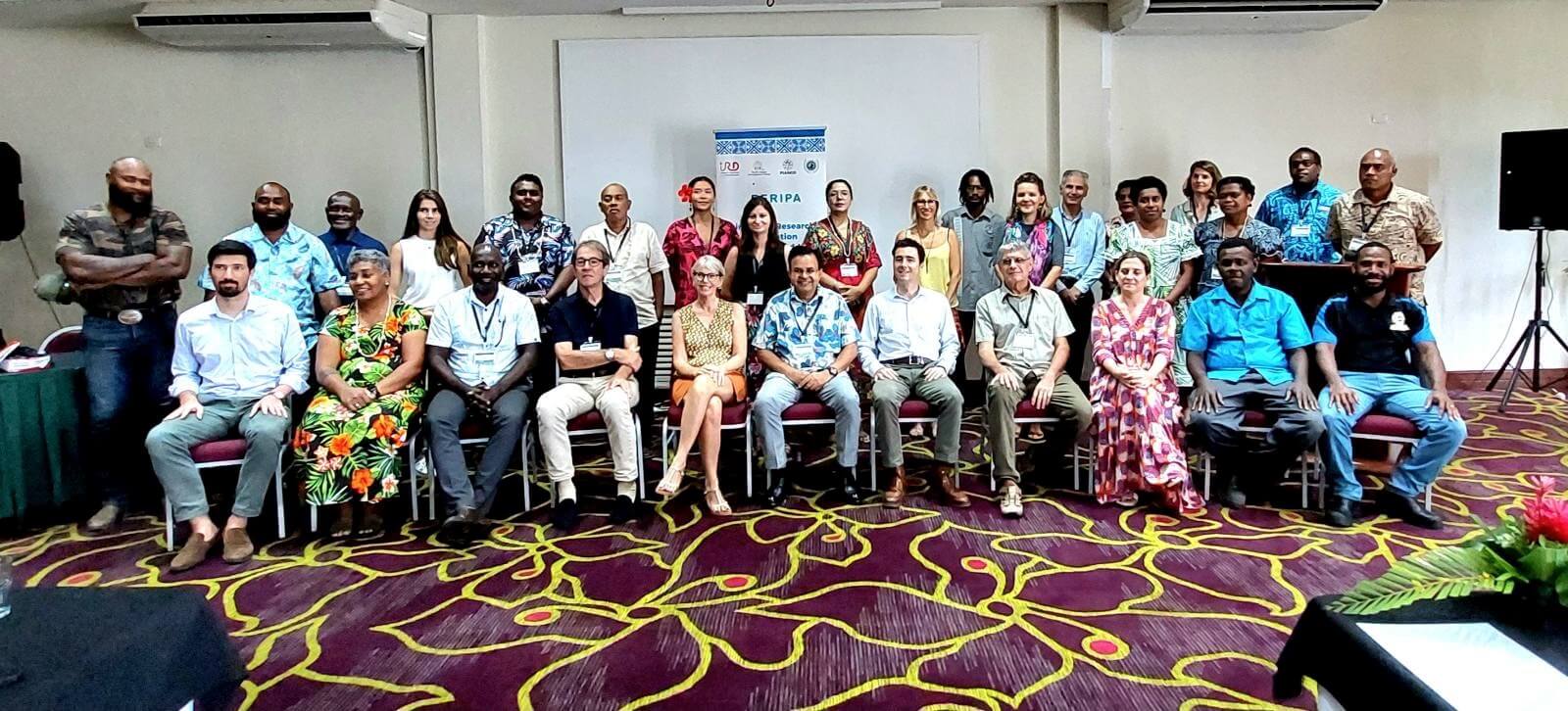
March, 6-8 2024. TPP1 SWOT and R&I diagnosis Workshop Port-Vila, Holiday Inn, Vanuatu
April – May 2024. CMT Monitoring and Evaluation of mapping, capacity building, education projects and Living Labs.
As a CMT Monitoring and evaluation, two RERIPA Technical Workshops were organised at PIDF in order to revise logframes and objectives of TPP1, 2 and all Living Labs (TPP3-4-5-6).

Technical workshops of different TPPS consortium at PIDF (Courtesy PIDF)
July 2024. PIDF – CMT evaluation of the TPPs: Living Lab site visits
The CMT organized site visits of the TPP6. Training was held in Tuvalu and Kiribati for coral restoration techniques implemented in Fiji can be replicated in these two countries, which are particularly exposed to marine submersion and were in desperate need for resilient corals to reduce the energy of waves and swells on the coast, which are the main cause of coastal erosion. A short video presenting its activities on Malolo Island is featured on the UNESCO website dedicated to the Decade of Oceans. https://www.facebook.com/watch/?v=3742014239389150.
The tourism industry of the Pacific is dependent on coral reefs for their business, and this industry has the most to loose from the loss of coral reefs. Coral gardeners are also trained to interact with the indigenous reef using communities and to work with them to create permanent no-take areas around resorts. Coral reef restoration can be a useful tool if well integrated into a community-based management framework, to support tourism.

Naidiri Village (Fiji). Construction of a A-Frame for the transplantation of corals adapted to heat to cooler waters as an example of community-based management (courtesy CMT)
The gene bank nursery was set in December 2023 thanks to the RERIPA project and continued until early 2024. The letters BULA are formed by assemblages of coral colonies attached on frames, a totally new coral nursery of genebank of resistant corals in the sahllow 3-meter deep sandflat.

Malolo Island (Fiji). Pictures of the Bula nursery bank gene installed thanks to the RERIPA project between December 2023 and June 2024. (Courtesy C4C & CMT)
August 2024. TPP6 Coral for Conservation monitoring of the Tuvalu site by C4C co-applicant
The CMT could not travel to Tuvalu. The responsible lead of C4C visited the TPP6 site and met the Fuligafou partner. A state of coral reefs report was produced before the start of the RERIPA project as a baseline : Bowden-Kerby, Austin. (2022). Climate Change Adaptation Measures for Coral Reefs in Tuvalu Corals for Conservation in Partnership with Tuvalu Ridge to Reef Project, Tuvalu Ministry of Environment. 10.13140/RG.2.2.15180.08328.
August 14, 2024. TPP8 Microcredentials Workshop in Suva
TPP8 organized a 1-day Workshop for all RERIPA partners for the development of Micro-qualifications (MQ) : features and process, with an overview of the accreditation processes.
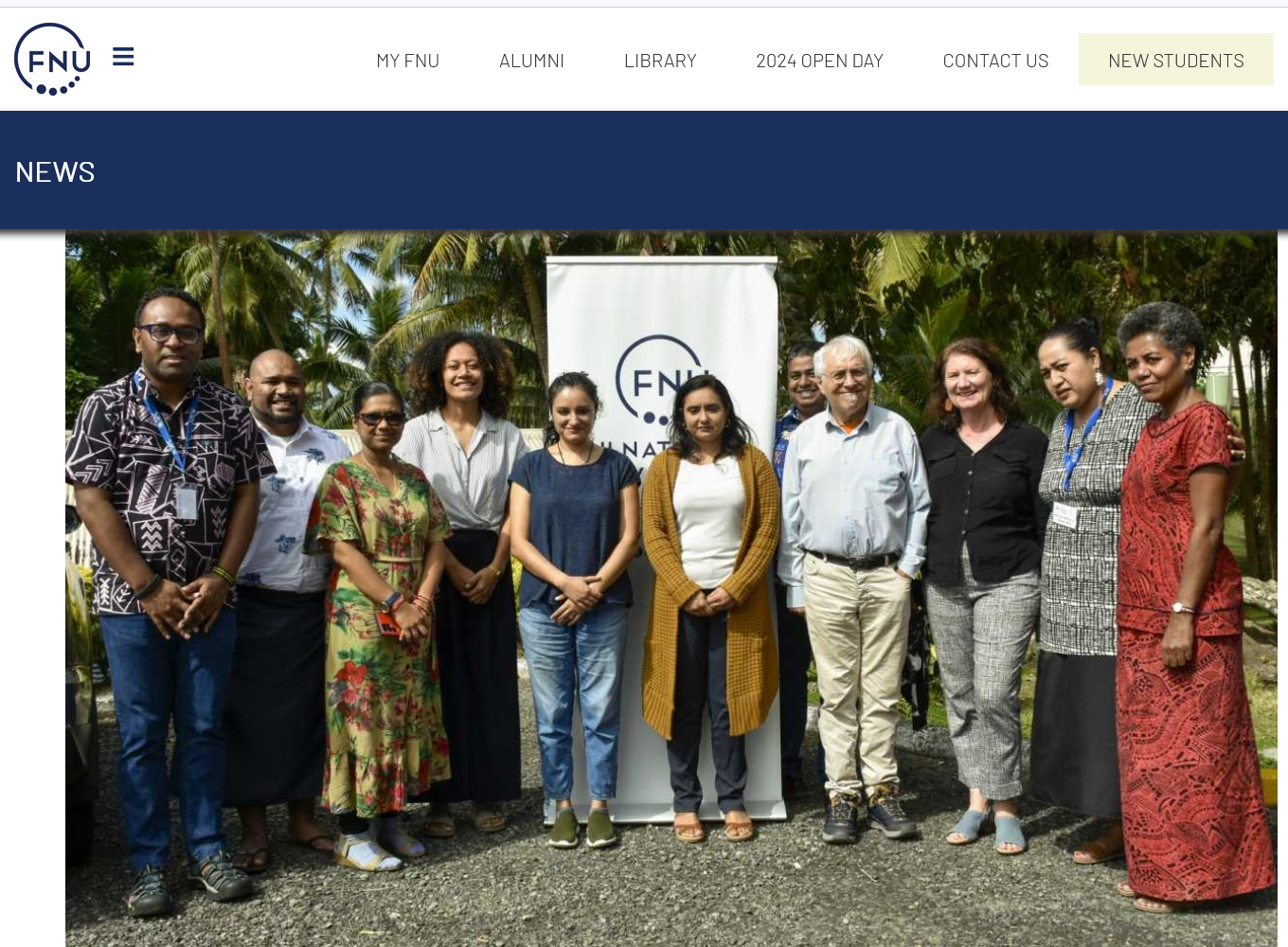
SPC symposium on microcredentials (Courtesy FNU)
September 2024. TPP2- Capacity building in innovation and valorization in collaboration with APN
The TPP2 co-organized with APN (The Asia-Pacific Network for Global Change Research), the University of the South Pacific(s) (USP), and the Pacific Center for Environment and Sustainable Development (PaCE-SD), a workshop on “Proposal Development Training Workshop for Global and Regional Change Research in the Pacific “ on the 26 – 29 August 2024 at the Central Cuisine Event Center in Suva, Fiji.

TPP2- APN August 2024 – Capacity building Workshop (courtesy CMT).
September 2024. On line CMT monitoring and evaluation of the TPP5 Sustainable and innovative Solutions for Managing Coastal Erosion
The solution retained by the RERIPA TPP5 is a nature-based, hybrid, geotextile wall to stabilise the foreshore and mitigate the impacts of sea level rise. The Te Ikapurea Society (TIS), the non-government, civil society environmental organisation (NGO/CSO) in the Cook Islands working with Muri Environmental care showed the advancement of the project. Engineering design and specifications was completed for Rarotongan, Pukapukan low-lying atoll and Fijian sites including : i) Site-optimal bag sizes and wall design ii) Site optimal construction Techniques iii) Environmental impact assessment was achieved.



Photos of the TIS project for coastal restoration in Cook Islands (Courtesy K. Passfield, TIS)
September 2024. TPP8 Communication and Training Tools & Resources for Enhancing Research & Innovation to Face Climate Change Challenges. “Collaborative Pathways: Workshop, FNU Nasinu Campus, Online and presence.
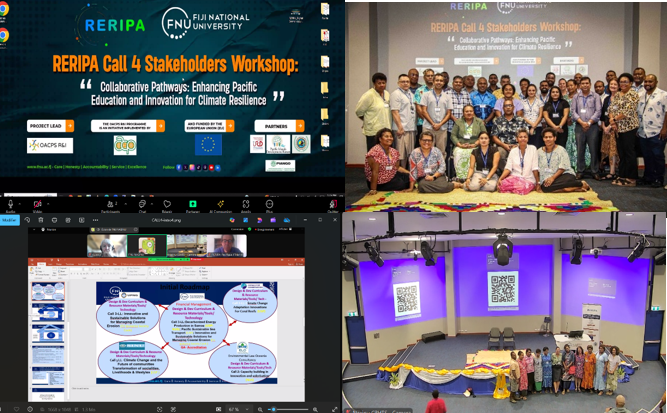
Collective Pathways Workshop on climate change impact mitigation (courtesy FNU)
The TPP8 consortium organized a 2-days stakeholders Workshop for consultation with relevant stakeholders on September 3rd (industry -based) and 4th (Community-based) 2024 for curriculum development and training. There were 60 participants from 3 Fijian villages that attended the secondary workshop. Most of the discussions was in the Fijian itaukei langage.
There were two objectives of the workshop:
- Engage Stakeholders: Facilitate collaboration among government officials, civil society, NGOs, corporate entities, regional and international institutions, local communities, and small and medium entrepreneurs to strengthen climate change education and innovation;
• Critique and Feedback: Provide a platform for stakeholders to review and critique the instructional materials and programs developed, ensuring they are effective and contextually relevant.
Pictures of the FNU Collective pathways workshop on climate change impact mitigation (courtesy FNU).
September 2024. TPP3- Living Lab for a Decarbonized Energy Production in Samoa SUNGO co-applicant
The innovative dimension of the RERIPA TPP3 deals with the energy storage and the proposed organization for sharing the produced energy on a remote island with a small 100 persons community deeply involved in looking for an alternative energy source and energy sharing. The solution retained is a microgrid designed, installed and implemented to provide electricity, heating, and refrigeration. A training programme was also planned to equip local staff with the necessary skills for ongoing maintenance and operation. SUNGO, the NGO co-applicant, published the 2023-2024 annual report.
October 2024. RERIPA Event brings together RERIPA consortium partners (Tanoa, International Hotel, Nadi, Fiji)
The RERIPA October Event was held at the Tanoa International Hotel in Nadi from the 15th – 17th October, 2024. The RERIPA Coordination and Management Team drew together for the first time representatives from the eight different RERIPA projects under the same roof during this two-day hybrid RERIPA Event at The Nadi International Hotel, Fiji.
Participants included partners from: i) the Institute of Research for Development (IRD); ii) Vanuatu Meteorology and Geohazards Department (VMGD); iii) Pacific Islands Association of Non-Governmental Organisation; iv) Pacific Islands Development Forum (PIDF); iv) Organisation of African, Caribbean and Pacific States (OACPS); v) RERIPA project leads and consortium partners from all Third Party Projects (TPP1 to TPP8) successfully selected from Calls 1 to 4 (reripa.com).
Chief guests at the Event were Ms. Roxane Castelein, representing the Delegation of the European Union for the Pacific, and Prof. Sushil Kumar representing the University of the South Pacific. https://www.facebook.com/story.php/?story_fbid=389277470915577&id=100094999820588&_rdr
The 3-day meeting brough together all RERIPA participants to present their respective achievements and status for the (5) Living Labs.
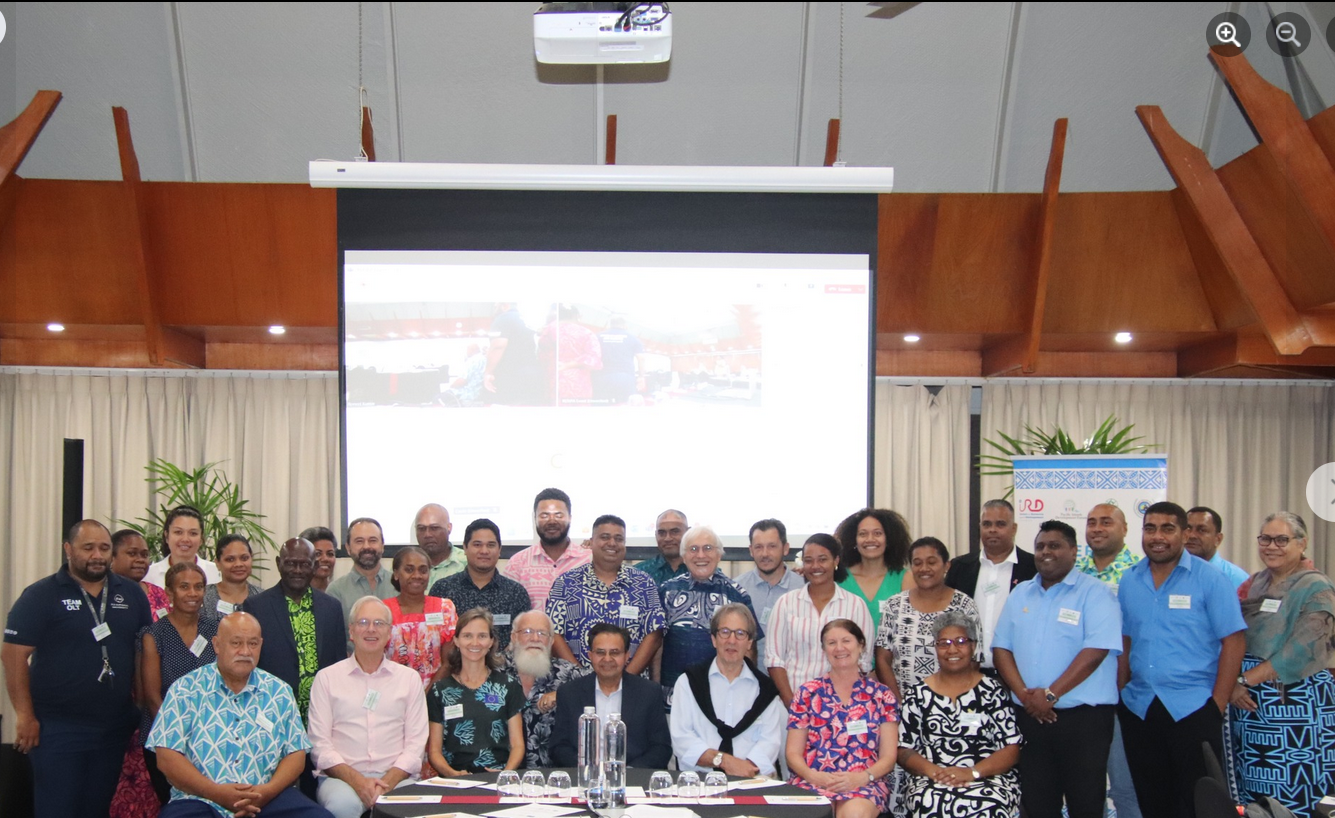
RERIPA 15-17 October 2024 event. Group photo. Tanoa International Hotel, Nadi, Fiji
The objective of the October event was to :-
• Give an update on the respective status of the Third Party Projects (TPPs) from Call 1, Call 2 and Call4.
• Present the first results obtained by the 5 Living Labs selected from Call 3.
• Bring together all RERIPA project leads and consortium partners from Calls 1 – 4 in order to better coordinate complementary activities ;
• Discuss innovative solutions for expected future actions for a consolidated network of stakeholders in the Pacific
The 3-day event was comprised of presentations of each project with a General overview, an update on progress, activities to-date & next achievements followed by Q&A discussion. In addition to the presentations from the eight different RERIPA Third Party Projects (TPPs) projects , there were also two conferences. One was on the institutional View of the USP Regional and Global Approach on Research & Innovation in the Pacific, and a second on Innovation; Perspective of Social, Economy & Geography in the Pacific Islands. An internal Session on Financial Management & Introduction to Log Frame was organized by GOPA.
The program details and list of participants can be found. Concept note can be found at https://reripa.com.

Pictures of the RERIPA October 2024 event (courtesy PIDF)
October-November 2024. CMT and OACPS Monitoring and Evaluation and site visits.
As part of the M&E exercise, the CMT and OACPS officials visited the Corals Living Lab sites, indifferent Coral Restoration Site Visit and Community Engagement : – the Bula Reef – Plantation Island Resort, Malolo Island, – a site on Beqa Island – and Serua Village – Sigatoka, to look at the alternative livelihood initiatives for project site communities. This was a wonderful opportunity for the team to examine the projects sites, understand the various challenges faced by the project partners, and identify administrative solutions and processes that can be improved for enables of the project.

Visits of sites involved in the TPP6-CORALS (courtesy PIDF)
December 2024. Revisions of Logframes with the help of the TAU (on line).
All TPPs consortium members were invited to update their logframes via zoom meetings according to the requirement of a NCE extension.
December 2024-January 2025. On sites TPP4 CHANCES Household Surveys and Collaborative meetings
TPP4 scientific coordinator and interns organized household surveys and collaborative workshops in Solomon Islands, vanuatu and Fiji rural and urban villages, for preparing the data collection regarding lifestyle (nutrition and health) and regarding livelihood (with a focus on family farming).
May 2025. Site visit of the TPP3-Decarbonated Energy in Samoa by the CMT staff of PIDF
This TPP had as primary objective to deliver a clean and reliable energy supply to a remote island in Samoa. The project entailed a microgrid to be designed, installed, that will provide electricity, heating, and refrigeration to a small rural community in Upolu, Samoa. Through workshops and meetings with local stakeholders, the project has been tailored to meet community needs iteratively.
June 2025. CMT Monitoring and Evaluation of the TPP5.
The 1st Visit of the LL TPP5 Coastal erosion by the CMT PIDF to the Te Ikapurea Te Ipukarea Society (TIS), the non-government, civil society environmental organisation (NGO/CSO) in the Cook Islands, Leader of the TPP. The CMT examined the proposed project site, and noted the challenge faced by the communities. It was noted that a similar activity on coastal restoration was undertaken a few meters away from the proposed site , which provided a necessary protection for the coast.

June 2025. PIDF CMT evaluating Cook Islands project of coastal restoration (courtesy PIDF)
